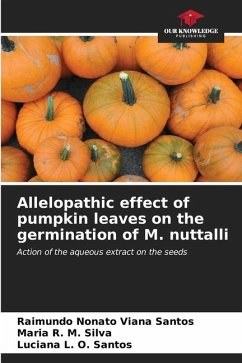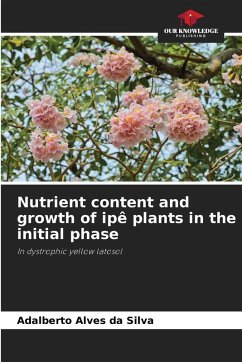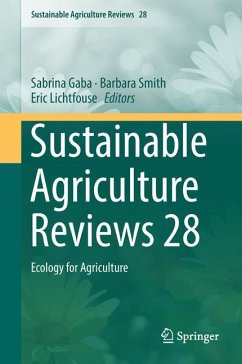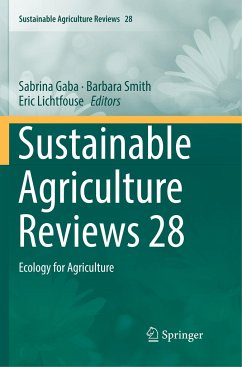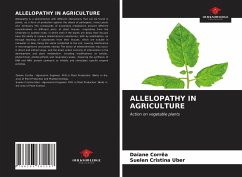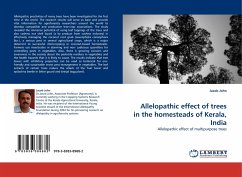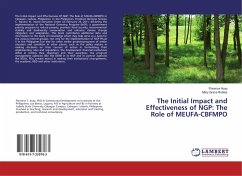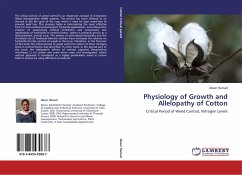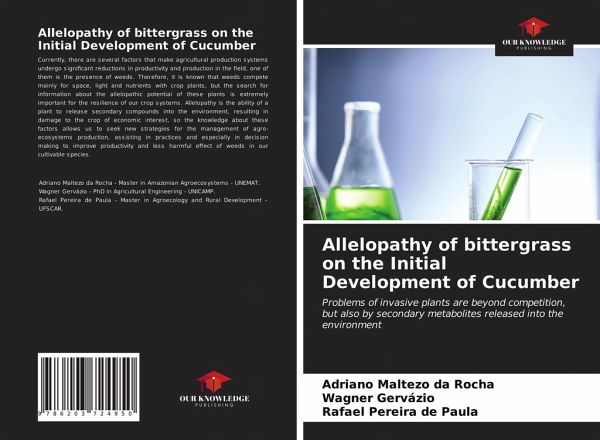
Allelopathy of bittergrass on the Initial Development of Cucumber
Problems of invasive plants are beyond competition, but also by secondary metabolites released into the environment
Versandkostenfrei!
Versandfertig in 6-10 Tagen
27,99 €
inkl. MwSt.

PAYBACK Punkte
14 °P sammeln!
Currently, there are several factors that make agricultural production systems undergo significant reductions in productivity and production in the field, one of them is the presence of weeds. Therefore, it is known that weeds compete mainly for space, light and nutrients with crop plants, but the search for information about the allelopathic potential of these plants is extremely important for the resilience of our crop systems. Allelopathy is the ability of a plant to release secondary compounds into the environment, resulting in damage to the crop of economic interest, so the knowledge abou...
Currently, there are several factors that make agricultural production systems undergo significant reductions in productivity and production in the field, one of them is the presence of weeds. Therefore, it is known that weeds compete mainly for space, light and nutrients with crop plants, but the search for information about the allelopathic potential of these plants is extremely important for the resilience of our crop systems. Allelopathy is the ability of a plant to release secondary compounds into the environment, resulting in damage to the crop of economic interest, so the knowledge about these factors allows us to seek new strategies for the management of agro-ecosystems production, assisting in practices and especially in decision making to improve productivity and less harmful effect of weeds in our cultivable species.



